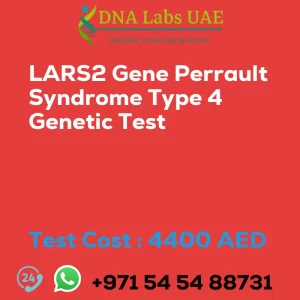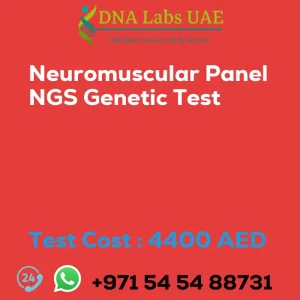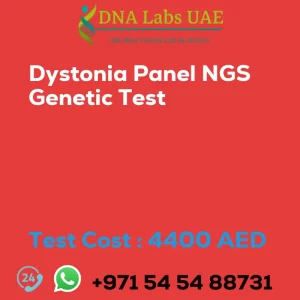SOX10 Gene Peripheral demyelinating neuropathy Waardenburg syndrome and Hirschsprung disease Genetic Test
Test Name: SOX10 Gene Peripheral demyelinating neuropathy Waardenburg syndrome and Hirschsprung disease Genetic Test
Components: Price 4400.0 AED
Sample Condition: Blood or Extracted DNA or One drop Blood on FTA Card
Report Delivery: 3 to 4 Weeks
Method: NGS Technology
Test type: Neurological Disorders
Doctor: Neurologist
Test Department: Genetics
Pre Test Information: Clinical History of Patient who is going for SOX10 Gene Peripheral demyelinating neuropathy Waardenburg syndrome and Hirschsprung disease NGS Genetic DNA Test. A Genetic Counselling session to draw a pedigree chart of family members affected with SOX10 Gene Peripheral demyelinating neuropathy Waardenburg syndrome and Hirschsprung disease.
Test Details
The SOX10 gene is associated with various genetic conditions, including peripheral demyelinating neuropathy, Waardenburg syndrome, and Hirschsprung disease. NGS (Next-Generation Sequencing) genetic testing can be used to analyze the DNA sequence of the SOX10 gene and identify any mutations or variations that may be present.
Peripheral demyelinating neuropathy refers to a condition in which the protective covering of nerve fibers (myelin) in the peripheral nervous system is damaged, leading to various neurological symptoms such as weakness, numbness, and tingling.
Waardenburg syndrome is a genetic disorder characterized by hearing loss, changes in pigmentation of the hair, skin, and eyes, and in some cases, abnormalities of the inner ear and facial structure.
Hirschsprung disease is a condition in which there is a lack of nerve cells in parts of the large intestine, leading to problems with bowel movements.
NGS genetic testing involves sequencing the entire or specific regions of the SOX10 gene to identify any genetic changes that may be causing or contributing to these conditions. This type of testing can help with diagnosis, provide information about the inheritance pattern, and guide treatment decisions.
It is important to consult with a healthcare professional or genetic counselor to discuss the specific indications for genetic testing, the potential benefits, limitations, and implications of the results, as well as any other relevant considerations.
| Test Name | SOX10 Gene Peripheral demyelinating neuropathy Waardenburg syndrome and Hirschsprung disease Genetic Test |
|---|---|
| Components | |
| Price | 4400.0 AED |
| Sample Condition | Blood or Extracted DNA or One drop Blood on FTA Card o |
| Report Delivery | 3 to 4 Weeks |
| Method | NGS Technology |
| Test type | Neurological Disorders |
| Doctor | Neurologist |
| Test Department: | Genetics |
| Pre Test Information | Clinical History of Patient who is going for SOX10 Gene Peripheral demyelinating neuropathy Waardenburg syndrome and Hirschsprung disease NGS Genetic DNA Test A Genetic Counselling session to draw a pedigree chart of family members affected with SOX10 Gene Peripheral demyelinating neuropathy Waardenburg syndrome and Hirschsprung disease |
| Test Details |
The SOX10 gene is associated with various genetic conditions, including peripheral demyelinating neuropathy, Waardenburg syndrome, and Hirschsprung disease. NGS (Next-Generation Sequencing) genetic testing can be used to analyze the DNA sequence of the SOX10 gene and identify any mutations or variations that may be present. Peripheral demyelinating neuropathy refers to a condition in which the protective covering of nerve fibers (myelin) in the peripheral nervous system is damaged, leading to various neurological symptoms such as weakness, numbness, and tingling. Waardenburg syndrome is a genetic disorder characterized by hearing loss, changes in pigmentation of the hair, skin, and eyes, and in some cases, abnormalities of the inner ear and facial structure. Hirschsprung disease is a condition in which there is a lack of nerve cells in parts of the large intestine, leading to problems with bowel movements. NGS genetic testing involves sequencing the entire or specific regions of the SOX10 gene to identify any genetic changes that may be causing or contributing to these conditions. This type of testing can help with diagnosis, provide information about the inheritance pattern, and guide treatment decisions. It is important to consult with a healthcare professional or genetic counselor to discuss the specific indications for genetic testing, the potential benefits, limitations, and implications of the results, as well as any other relevant considerations. |








